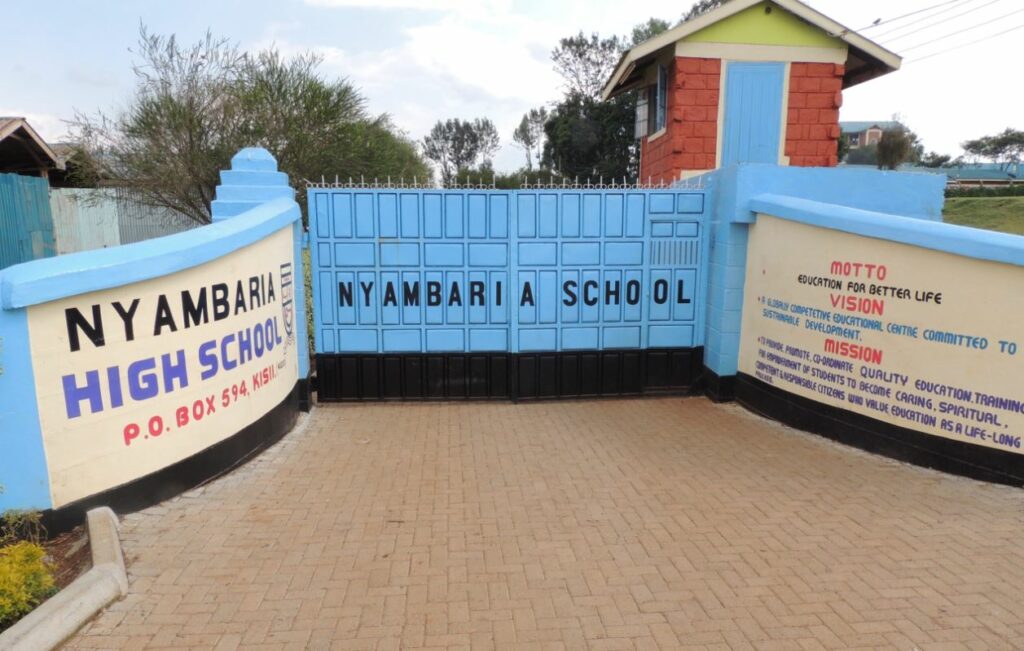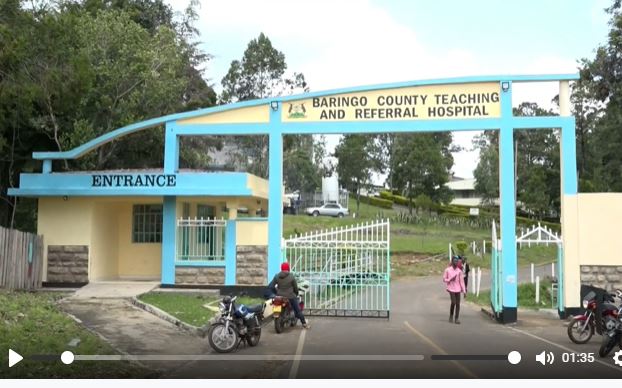A devastating early morning fire on Tuesday, May 27, gutted a dormitory at Nyambaria Boys’ High School, displacing over 380 students and destroying personal belongings in a matter of hours.
The blaze, which broke out around 4 a.m. while students were in their classes for morning preps, quickly spread through the dormitory, reducing mattresses, books, uniforms, and other essentials to ashes. Dramatic images and videos of the inferno, visible even from neighboring estates, sparked concern both locally and nationally.
“I have nothing left—not even my shoes. Everything burned,” said a visibly shaken Form Three student, standing outside the smoldering ruins of his former sleeping quarters.
The Nyamira County Fire Brigade arrived on the scene to contain the fire before it spread to other structures, including the nearby kitchen block. Fortunately, no injuries were reported.
“It’s a miracle no life was lost,” said a school staff member who spoke on condition of anonymity. “But the material loss is overwhelming. These boys have lost everything.”
Nyamira County officials confirmed that an investigation is underway to determine the cause of the blaze. The dormitory’s proximity to the kitchen has prompted speculation, but fire experts are urging patience as forensic teams comb through the wreckage.
Nyambaria Boys, a national academic giant famed for posting a mean score of 10.8975 in the 2022 KCSE exams, now faces a new kind of test—how quickly it can recover from a disaster of this magnitude.
This incident adds to a worrying trend in Kenya’s education sector. Just a day before, students at Friends School Mbale in Vihiga County vandalized property after being denied a chance to watch La Liga football matches. These back-to-back disruptions have reignited debate over student welfare, school safety, and the broader preparedness of institutions to deal with emergencies.
Meanwhile, the national government is pushing for more robust fire safety measures across the country. On Monday, May 26, Nairobi Regional Commissioner Katee Mwanza announced the introduction of early warning systems in disaster-prone areas and pledged collaboration with the National Disaster Operations Centre (NDOC).
“We must remain vigilant. These incidents are becoming too frequent,” Mwanza said. “Training communities and school administrations in fire preparedness is no longer optional—it’s a necessity.”











